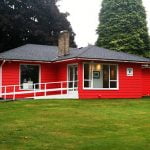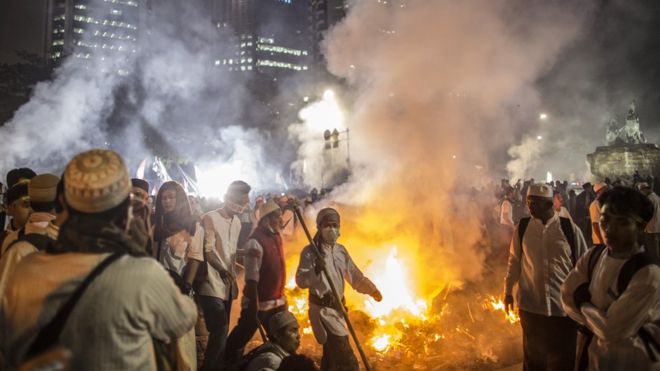TAKAYAMA, Gifu — As the number of foreign tourists in Japan continues to rise, Nokyo Tourist Corp. in Tokyo is offering guided tours here on the Jewish Sabbath of Saturday to devout Israeli sightseers that are adjusted to meet their religious needs.
Yuji Hayashi, the head of the group’s international relations center, says Takayama was chosen because “it has various sightseeing spots bunched together, so tourists can see them without using a bus.” Under Jewish teachings, Jews are forbidden from working or using gas stoves on the Sabbath. They are also forbidden to ride on transportation or use household appliances.
“Boker tov (good morning),” said Etsuro Tani, 45, the manager of “Tanimatsu,” a long-established purveyor of rice crackers, to some Israeli tourists in Hebrew at his shop on one morning in November last year. The tourists were visiting visiting the Miyagawa morning market, which is known as one of Japan’s three major morning markets. Near the cash register are posted handwritten pronunciations for words to use when describing his products, such as “sesame,” “peanut” and “handmade,” in various languages including English and Chinese.
“I’ve been using these phrases that foreign tourists taught me to serve my customers. They respond well and buy my products, so it’s fun to talk to them,” he says.

One 57-year-old Israeli interpreter who had twice accompanied groups of devout tourists to Takayama said that the groups stay in the lower stories of lodgings so they don’t have to use elevators and have hotel staff use the electronic key cards for them, allowing them to keep to the teachings of their faith while enjoying a foreign culture.
Nokyo Kanko has been offering tours for religious Jewish sightseers for the past six years. On the Sabbath they don’t use electric kettles, so the company sends 30 non-electric thermoses to the hotel where the tourists will stay ahead of time.
“These days you don’t normally see thermoses at hotels,” remarks Hayashi. In spring trips to see cherry blossoms are popular, and in fall tours to see autumn leaves are also well received, although the 2016 autumn tour was cancelled due to a low number of participants.

Hayashi says, “Even on days other than the Sabbath, we send foods to the hotels that meet the Jewish travelers’ needs, and a Jewish chef who travels with the group prepares the meals, so it’s costly. When the yen strengthens, the tourists go to other countries.”
Still, in 2015, around 364,000 foreign tourists stayed at lodgings in Takayama, around 1.3 times the figure for 2014, and the increasing trend continued in 2016. Around 8,000 Israelis visit a year, and almost all visit the Chiune Sugihara Memorial Hall in Yaotsu, some 80 kilometers to the south.
Chiune Sugihara was a diplomat born in this town who issued so-called “visas for life,” allowing Jews persecuted in Nazi Germany to flee that country, earning him a reputation as the Japanese version of Oskar Schindler. Visitors to the memorial hall enjoy having their admission tickets, which are made to look like passports, stamped by a Japanese interpreter.

One 63-year-old Jewish woman who visited the museum as part of an Israeli group tour in November last year and watched a Hebrew-subtitled video of Sugihara’s work said she was brought to tears. She said it moved her, and she remarked that being humane was something important not just to Jewish society but to everyone in the world.
[Source:-The Mainichi]


